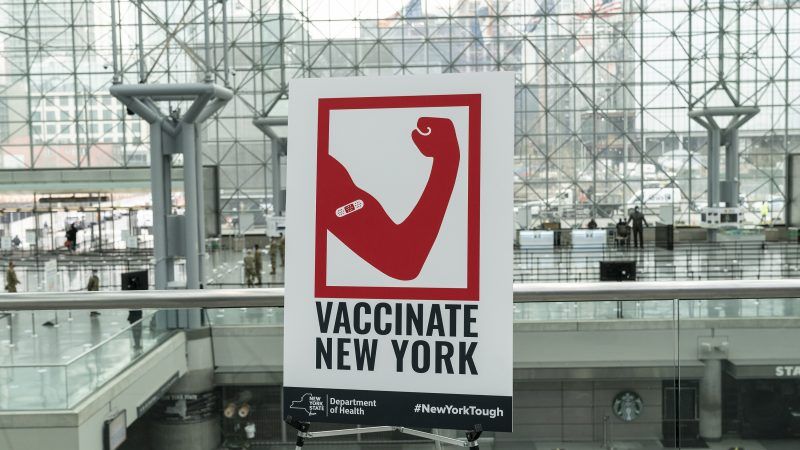Why Don't We Know How Many Vaccine Doses Are Being Thrown Away?
At a time when supply is constrained and time is of the essence, medical providers in many states are throwing precious doses away.

With health care providers running out of doses in droves and hustling to cancel thousands of appointments, many face an additional problem: Hobbled by strict guidelines for who can and cannot receive vaccines right now, and fines for flouting the rules, perfectly good doses are being thrown in the garbage. "I have personally heard stories like this from dozens of physician friends in a variety of different states. Hundreds, if not thousands, of doses are getting tossed across the country every day," Ashish Jha, dean of the Brown University School of Public Health, told NBC News.
It's an entirely predictable outcome. When vials of doses are thawed to prepare them for use, they cannot be refrozen. Vials that have been punctured must be used within just a few hours. Combine those factors with tight state-imposed parameters for which people can currently receive the vaccine and waste is practically unavoidable—when people cancel appointments with little notice, it can be hard for health care workers to find new recipients off the street who qualify under the state's current phase. They're left either breaking the law or throwing doses in the garbage.
To make matters worse, state departments of health are struggling to tell how often it's happening or how many precious doses have been squandered. Although many states mandate reporting of vaccine waste, providers have little incentive to comply: If New York's system is any indication, they might end up fined or under investigation.
In the Empire State, mass vaccination sites at Yankee Stadium and Citi Field have put operations on hold until the city can receive 200,000 shots per week—double what's currently expected. But just a few weeks ago, providers were throwing out doses. As I wrote then:
"On December 28, [Gov. Andrew Cuomo] signed an executive order rolling out strict penalties—up to $1 million in fines, plus loss of medical license—for medical providers who allow people to skip the state-issued vaccination line, even when those doses are about to expire….Predictably, The New York Times reported today that some clinics throughout New York City, like the Family Health Center of Harlem, are throwing out doses that are about to expire."
Meanwhile, a hospital in New Rochelle, New York, came under investigation for potentially allowing people to skip the vaccine line. All their doses were seized and reallocated elsewhere.
Medical providers are engaging in indefensible but perfectly rational behavior when they throw out doses; it's reasonable to be afraid of fines, and they have no incentive to report vaccine waste to the Centers for Disease Control and Prevention (CDC), despite being asked to do so. As the nonprofit investigative outlet ProPublica reports:
"In Washington, a health facility allegedly threw out some COVID-19 vaccine doses at the end of workers' shifts because staff believed state guidelines blocked them from giving unused shots to people below the top priority tier. In Maryland, workers appear to have tossed thawed doses when they ran out of time to administer them safely. How many doses, exactly, have been wasted in those states is unknown because neither state is tracking unused or wasted vaccines."
ProPublica found that some amount of vaccine waste is also occurring in Indiana, Michigan, and New Jersey; it's totally unclear whether these are isolated incidences or not. In Pueblo, Colorado, 300 doses had to be thrown out after a refrigeration malfunction. And NBC News reports that this is happening in Oregon, Ohio, and Massachusetts as well. Providers and state officials in North Carolina and Virginia allege they're doing a bit better,
This latest government failure to track the number of doses going to waste is awfully reminiscent of the failure to track school reopening data—something you'd think would be absolutely essential to determining whether school districts can return to in-person instruction. Once those data were collected, experts like Brown University economist Emily Oster were able to make the cautious case for school reopenings, being able to be more confidently assert that schools were not a significant vector for COVID-19 transmission. It's equally crucial in this situation that states have accurate data as to how many doses are being thrown out and why.
"Vaccines are worth more than gold and we don't have enough. We can't afford to waste a ml.," George Mason University economics professor Alex Tabarrok tells Reason. "Indeed, until production is much higher we need to consider every possible method of 'stretching' our doses such as using low dead-volume syringes, half-dosing, and moving to First Doses First."


Show Comments (57)